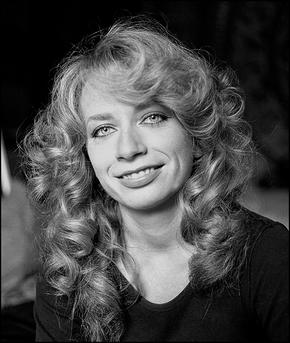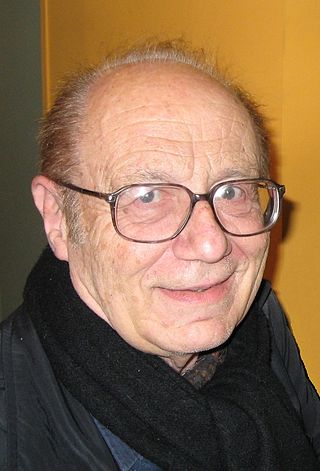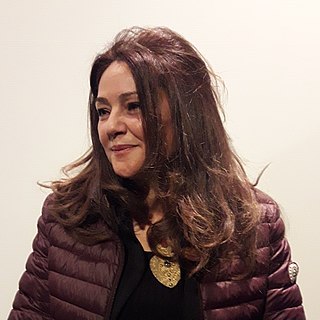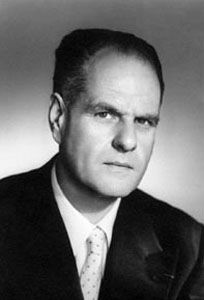Related Research Articles

Nicole Brossard is a French-Canadian formalist poet and novelist. Her work is known for exploration of feminist themes and for challenging masculine-oriented language and points of view in French literature.

Fatima-Zohra Imalayen, known by her pen name Assia Djebar, was an Algerian novelist, translator and filmmaker. Most of her works deal with obstacles faced by women, and she is noted for her feminist stance. She is "frequently associated with women's writing movements, her novels are clearly focused on the creation of a genealogy of Algerian women, and her political stance is virulently anti-patriarchal as much as it is anti-colonial." Djebar is considered to be one of North Africa's pre-eminent and most influential writers. She was elected to the Académie française on 16 June 2005, the first writer from the Maghreb to achieve such recognition. For the entire body of her work she was awarded the 1996 Neustadt International Prize for Literature. She was often named as a contender for the Nobel Prize for Literature.
Abdelkebir Khatibi was a prolific Moroccan literary critic, novelist, philosopher, playwright, poet, and sociologist. Affected in his late twenties by the rebellious spirit of 1960s counterculture, he challenged in his writings the social and political norms upon which the countries of the Maghreb region were constructed. His collection of essays Maghreb pluriel is one of his most notable works.
Tamahaq also known as is the only known Northern Tuareg language, spoken in Algeria, western Libya and northern Niger. It varies little from the Southern Tuareg languages of the Aïr Mountains, Azawagh and Adagh. The differences mostly consist of sound substitutions, such as Tamahaq instead of Tamajaq or Tamasheq. This language is “one of the sister languages spoken by the inhabitants of many districts of the Atlas range of mountains from Egypt to the Western shores of Morocco, and which are all included in the general term Berber.”
Fatima Gallaire, née Bourega, was a Franco-Algerian playwright and author of short stories, who wrote in French. Born in Algeria, she held degrees in French Literature from the University of Algiers, and in Cinema from Paris 8 University. She wrote over twenty plays, many of which have been translated and performed in languages including English, Italian, German, Spanish and Uzbek. These include Princesses, translated as You have come back, and Les Co-épouses, translated as House of Wives. She received the Arletty Prize for Drama in 1990 and the Académie française AMIC award in 1994.

Baroness Suzanne Lilar was a Flemish Belgian essayist, novelist, and playwright writing in French. She was the wife of the Belgian Minister of Justice Albert Lilar and mother of the writer Françoise Mallet-Joris and the art historian Marie Fredericq-Lilar.

Jean Paulhan was a French writer, literary critic and publisher, director of the literary magazine Nouvelle Revue Française (NRF) from 1925 to 1940 and from 1946 to 1968. He was a member of the Académie française. He was born in Nîmes (Gard) and died in Paris.

Charles Pellat was a French Algerian academic, historian, translator, and scholar of Oriental studies, specialized in Arab studies and Islamic studies. He was an editor of the Encyclopaedia of Islam published by Brill Academic Publishers, and a member of the Académie des Inscriptions et Belles-Lettres.

Mitsou Ronat was a French poet, linguist and specialist of literary theory.
Geneviève Hasenohr is a French philologist and prolific scholar of medieval and Renaissance French literature. She has authored or contributed to more than forty books, written at least fifty academic articles and reviews, and prepared numerous scholarly editions.
Leïla Aouchal was a French-Algerian writer.

Lloyd James Austin FBA was an Australian linguist and literary scholar, who worked in Great Britain as a university teacher.

Paulette Poujol-Oriol was a Haitian educator, actress, dramaturge, feminist and writer. Fluent in French, Creole, English, Spanish, German, and Italian, she contributed to Haitian arts and literature, and founded Picolo Teatro, a performing arts school for children. She has been recognized as one of Haiti's leading literary figures as well as one of the most active players in Haiti's feminist movement.
Rabah Belamri was an Algerian writer.

Pierre Bourgeade was a French man of letters, playwright, poet, writer, director, journalist, literary critic and photographer. A descendant of Jean Racine, he was also the brother-in-law of the writer Paule Constant.

Fawzia Zouari, born 10 September 1955 in Dahmani, is a Tunisian writer and journalist.

Roland Laudenbach was a French writer, editor, journalist, literary critic and scenarist. He had right-wing political beliefs aligned with the Action Française. After World War II he supported keeping Algeria part of France and saw the 1962 recognition of Algerian independence as a betrayal of the people by Christian and Socialist leaders. He edited or contributed to various literary and political magazines, wrote several novels, and wrote scripts and screenplays for numerous films.

Michel Zink is a French writer, medievalist, philologist, and professor of French literature, particularly that of the Middle Ages. He is the Permanent Secretary of the Académie des Inscriptions et Belles-Lettres, a title he has held since 2011, and was elected to the Académie française in 2017. In addition to his academic work, he has also written historical crime novels, one of which continues the story of Arsène Lupin.
Lydie Dooh Bunya, also known by her married name Quan-Samé, was a Paris-based Cameroonian journalist, writer, and feminist.
Djamila Debèche, sometimes written Debêche or Debbeche, was French-Algerian feminist writer. She was a pioneering journalist and novelist in Algeria, where she was one of the first women writers of the French colonial period.
References
- ↑ Jean Déjeux (1994). "LACHMET, Djanet". La littérature féminine de langue française au Maghreb . KARTHALA Editions. p. 231. ISBN 978-2-86537-500-4.
- ↑ Susan Ireland (1999). "Lachmet, Djanet (1948-)". In Eva Martin Sartori (ed.). The Feminist Encyclopedia of French Literature. Greenwood Press. p. 297. ISBN 978-0-313-29651-2.